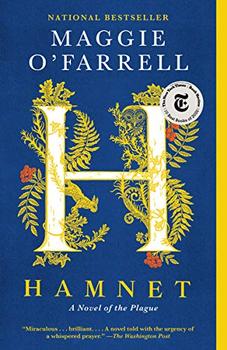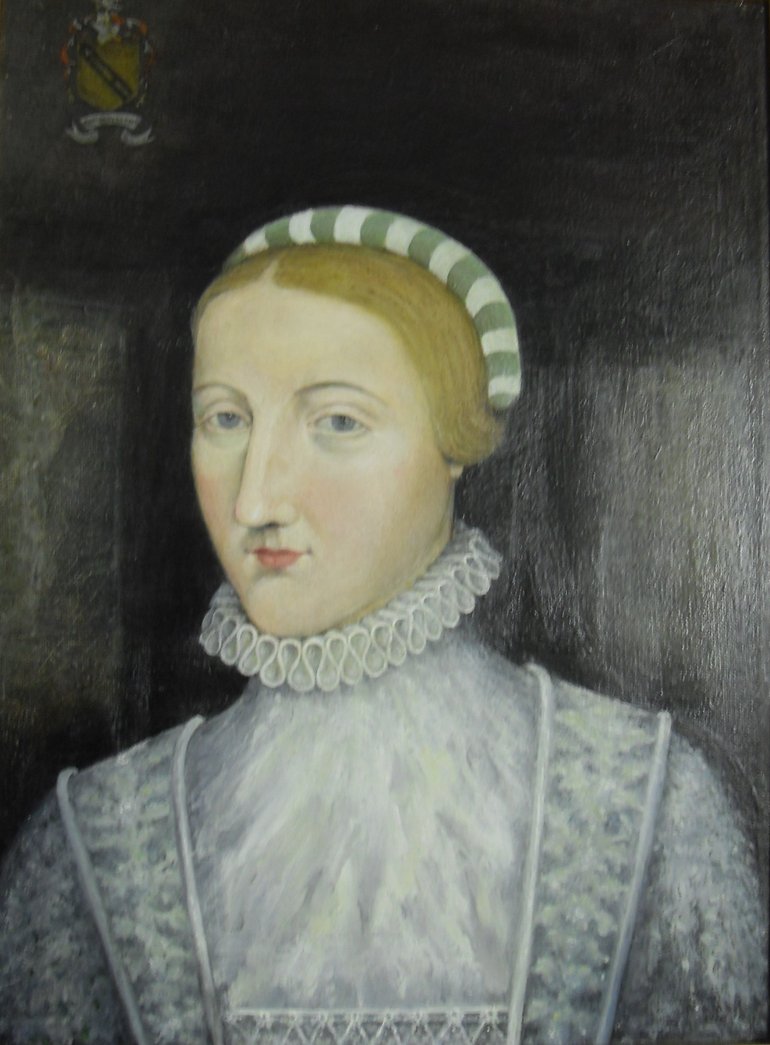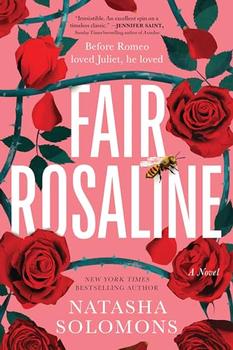Summary | Excerpt | Reading Guide | Discuss | Reviews | Beyond the book | Read-Alikes | Genres & Themes | Author Bio

"Of all the stories that argue and speculate about Shakespeare's life … here is a novel … so gorgeously written that it transports you." —The Boston Globe
England, 1580: The Black Death creeps across the land, an ever-present threat, infecting the healthy, the sick, the old and the young, alike. The end of days is near, but life always goes on.
A young Latin tutor—penniless and bullied by a violent father—falls in love with an extraordinary, eccentric young woman. Agnes is a wild creature who walks her family's land with a falcon on her glove and is known throughout the countryside for her unusual gifts as a healer, understanding plants and potions better than she does people. Once she settles with her husband on Henley Street in Stratford-upon-Avon she becomes a fiercely protective mother and a steadfast, centrifugal force in the life of her young husband, whose career on the London stage is taking off when his beloved young son succumbs to sudden fever.
Excerpt
Hamnet
A boy is coming down a flight of stairs.
The passage is narrow and twists back on itself. He takes each step slowly, sliding himself along the wall, his boots meeting each tread with a thud.
Near the bottom, he pauses for a moment, looking back the way he has come. Then, suddenly resolute, he leaps the final three stairs, as is his habit. He stumbles as he lands, falling to his knees on the flagstone floor.
It is a close, windless day in late summer, and the downstairs room is slashed by long strips of light. The sun glowers at him from outside, the windows latticed slabs of yellow, set into the plaster.
He gets up, rubbing his legs. He looks one way, up the stairs; he looks the other, unable to decide which way he should turn.
The room is empty, the fire ruminating in its grate, orange embers below soft, spiralling smoke. His injured kneecaps throb in time with his heartbeat. He stands with one hand resting on the latch of the door to the stairs, the scuffed leather tip of ...
Here are some of the comments posted about Hamnet.
You can see the full discussion here.
Agnes's husband says of her that it is a joy and a curse to be married to 'Someone who knows everything about you, before you even know it yourself.' Can you relate to this feeling at all?
I agree with Terrie, I don't have any family members that can tell what you're thinking -- I do believe in that, just haven't experienced it personally.
I think you can know someone quite well, but it's another ... - ColoradoGirl
Based on the portrayal of the play in this novel, how are Hamnet and his father, and Hamlet (the character) and his father related to one another?
In both cases, from what I recollect, the sons idolize their loving fathers from a distance. In Hamnet’s case this father-son bond ends with the death of the son while in Hamlet’s case, it ends with the death of the father. Hamnet, ... - Andrea
Discuss the significance of names in the novel overall. Who is afforded their own name, and who is known exclusively by their relation to others?
Interesting choice by author to never name the person most people know as a household name even if you were not an avid Shakespeare reader, yet use the common name interchangeable with the famous play name for the son. I found this fascinating and it... - jos
Discuss the twins' last moments together.
It showed how close the twins were. Later in the book when we learned about how they ate an apple as babies emphasized this. The death scene really emphasized their bond and was so well written. - terriej
How did this novel change your interpretation of Shakespeare's play?
For anyone wishing to "read" Shakespeare, I recommend seeing a play. Shakespeare's plays were written to be performed and are FAR better seen than read. Classical versions are best first, but are much easier to understand when seen. ... - lesleyf
The first two-thirds of the novel are split into a dual timeline, bouncing back and forth between the week of Hamnet's death (the present), and the blossoming romance between William and Agnes (the past). It's a tender yet fraught courtship, and the pacing here is slow and deliberate. The final third speeds up and takes place after the death of their son. Both parts are equally as successful — the languid pace is sustained by O'Farrell's lyrical prose, and the more frantic pace is made tense and urgent by it. O'Farrell imagines the subtler influences of Agnes and Hamnet on Shakespeare in a novel that's as intimate and human as it is grandiose...continued
Full Review
(666 words)
This review is available to non-members for a limited time. For full access,
become a member today.
(Reviewed by Rachel Hullett).
 Dominic Dromgoole, author of Hamlet, Globe to Globe
I don't know how anyone could fail to love this book. It is a marvel: a great work of imaginative recreation and a great story. It is also a moral achievement to have transformed that young child from being a literary footnote into someone so tenderly alive that part of you wishes he had survived and Hamlet never been written.
Dominic Dromgoole, author of Hamlet, Globe to Globe
I don't know how anyone could fail to love this book. It is a marvel: a great work of imaginative recreation and a great story. It is also a moral achievement to have transformed that young child from being a literary footnote into someone so tenderly alive that part of you wishes he had survived and Hamlet never been written. Emma Donoghue, author of Room
What could be more common, over centuries and continents, than the death of a child - and yet Maggie O'Farrell, with her flawless sentences and furious heart, somehow makes it new. This story of remarkable people bereft of their boy will leave you shaking with loss but also the love from which family is spun.
Emma Donoghue, author of Room
What could be more common, over centuries and continents, than the death of a child - and yet Maggie O'Farrell, with her flawless sentences and furious heart, somehow makes it new. This story of remarkable people bereft of their boy will leave you shaking with loss but also the love from which family is spun. Sarah Moss, author of Ghost Wall
Grief and loss so finely written I could hardly bear to read it.
Sarah Moss, author of Ghost Wall
Grief and loss so finely written I could hardly bear to read it. Little is known about Shakespeare's family, names and birth dates aside — and even names are tricky. Though commonly referred to as Anne Hathaway, Shakespeare's wife may have actually been named Agnes, according to a will left by her father. O'Farrell makes the decision to use the name Agnes in her novel Hamnet, but she references this confusion in the narrative itself, in a scene where she introduces herself as Agnes but Shakespeare mishears her and thinks she said Anne.
Little is known about Shakespeare's family, names and birth dates aside — and even names are tricky. Though commonly referred to as Anne Hathaway, Shakespeare's wife may have actually been named Agnes, according to a will left by her father. O'Farrell makes the decision to use the name Agnes in her novel Hamnet, but she references this confusion in the narrative itself, in a scene where she introduces herself as Agnes but Shakespeare mishears her and thinks she said Anne.
The real Agnes, or Anne, was born in 1556, likely in a town called Shottery near Stratford, and was raised by father Richard, a local landowner, and stepmother Joan in a one-story farmhouse called Hewley Farm. There were eight children in their home, three by Anne...
This "beyond the book" feature is available to non-members for a limited time. Join today for full access.

If you liked Hamnet, try these:

by Natasha Solomons
Published 2024
The most exciting historical retelling of 2023: a subversive, powerful untelling of Romeo and Juliet by New York Times bestselling author Natasha Solomons.
Was the greatest ever love story a lie?

by Allen Bratton
Published 2024
Crackling with intelligence and wit, Henry Henry is a brilliant recasting of the Henriad in which Hal Lancaster is a queer protagonist for a new era.





